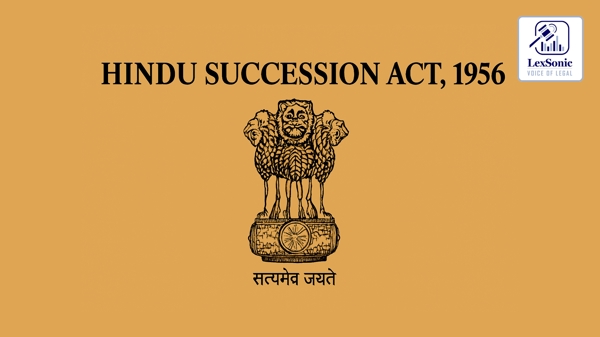Court Upholds Suit Maintainability: Benami Act and Hindu Succession Act Defenses to be Weighed at Trial.
20 May 2025
Civil Suits >> Civil & Consumer Law | Hindu Succession Act >> Inheritance
The Supreme Court has dismissed two special leave petitions challenging the rejection of an application under Order VII Rule 11 of the Code of Civil Procedure (CPC). The petitions, filed by a contesting defendant and a subsequent purchaser, sought to have a partition suit dismissed on the grounds that it was barred by the Benami Transaction (Prohibition) Act, 1988, and the Hindu Succession Act, 1956. Both the court of first instance and the High Court had previously rejected these applications.
The case revolves around a Regular Suit (No. 630A/2018) instituted by a mother and her younger son (plaintiffs) against the other son and his family members (defendants), including subsequent purchasers of some properties. The suit seeks partition, possession, declaration, injunctions, and accounting regarding properties alleged to be joint family properties, purchased from the nucleus or income of a joint family business.

The Core of the Dispute:
The plaintiffs contend that the properties, though sometimes held in the names of individual family members, were acquired through joint family funds or income from businesses like 'Himalaya Tailors' and 'Hemi Textiles'. Crucially, they argue that these properties are Hindu Joint Family properties and thus the suit is not prohibited by the Benami Act. They also pointed out that the Benami Act, as amended in 2016, came into force after most of the properties were purchased.
The defendants, particularly the subsequent purchasers (defendant Nos. 5 and 6), moved an application under Order VII Rule 11 CPC, arguing that the suit was not maintainable under the Benami Act. Interestingly, the main contesting defendants (the elder brother and his family) did not file such an application.
Rejection of the Application Under Order VII Rule 11 CPC:
Both the trial court and the High Court rejected the application to dismiss the suit. The trial court, after reviewing the plaint averments, concluded that whether the properties were Joint Hindu Family properties or individual properties, and thus liable for partition, was a question dependent upon facts to be adjudicated upon after evidence is adduced. Relying on the precedent of Popat and Kotecha Property vs. State Bank of India Staff Association, the court held that the suit was not barred by any law based solely on the plaint allegations.
The High Court affirmed this decision, reiterating that the nature of the properties is a matter for evidence and that the plaint's averments do not unequivocally indicate it is barred by any statutory provision.
Supreme Court's Analysis and Dismissal:
The Supreme Court addressed two main contentions raised by the petitioners:
- Bar under Section 4 read with Section 14 of the Benami Act: The petitioners argued that some properties were in the exclusive name of defendant No. 2 and thus were her personal properties, not amenable to partition. They also contended the suit was broadly hit by Section 4 of the Benami Act.
- Suit barred by Section 14 of the Hindu Succession Act: This point was raised for the first time before the Supreme Court.
The Court made several key observations:
- Locus Standi of Defendant No. 2: The Court noted that defendant No. 2 (Shaifali Gupta) had not moved the original application under Order VII Rule 11 CPC nor filed a revision against its rejection. Therefore, she was not an aggrieved party and could not challenge the impugned orders, having implicitly accepted the trial court's jurisdiction to contest the suit on merits.
- Limited Knowledge of Subsequent Purchasers: The Court highlighted that defendant Nos. 5 and 6, being subsequent purchasers, could not have personal knowledge about the original nature of the properties (e.g., whether they were Joint Hindu Family property, individual property, or benami). This limited their ability to move an application under Order VII Rule 11 CPC based on the Benami Act.
- Nature of Plaint Averments regarding Benami: The Supreme Court emphasized that the plaint consistently described the suit properties as Joint Hindu Family properties, purchased from joint family funds or income. It held that from a plain reading of the plaint, the properties cannot ex-facie be considered benami properties, which would bar the suit under Section 4 of the Benami Act.
- Exception to Benami Transaction: The Court clarified that whether a property is "benami" and falls within the exceptions defined in Sections 2(8) and 2(9) of the Benami Act (e.g., property held in a fiduciary capacity for another person's benefit) is a disputed question of fact requiring evidence. Citing Pawan Kumar vs. Babu Lal, the Court reiterated that a plaint cannot be rejected under Order VII Rule 11(d) CPC unless it appears "without doubt or dispute" that the suit is barred by a statutory provision.
- Section 14 of the Hindu Succession Act: The Court found that the plea regarding Section 14 of the Hindu Succession Act was raised for the first time in the Special Leave Petition and lacked a foundational basis in the lower courts. More importantly, Section 14 merely states that property possessed by a female Hindu shall be held by her as a full owner; it does not bar or prohibit a suit in respect of such property.
In conclusion, the Supreme Court found no error in the decisions of the lower courts to reject the Order VII Rule 11 CPC application. The Court affirmed that the parties are at liberty to contest the suit on its merits, with relevant issues, including any statutory bar, being framed and decided after evidence is adduced. The dismissal of the Special Leave Petitions ensures that the suit will proceed to trial, allowing for a full evidentiary hearing on the nature of the properties and their liability for partition.
Section 14, Hindu Succession Act - 1956
Benami Transactions (Prohibition) Act, 1988
